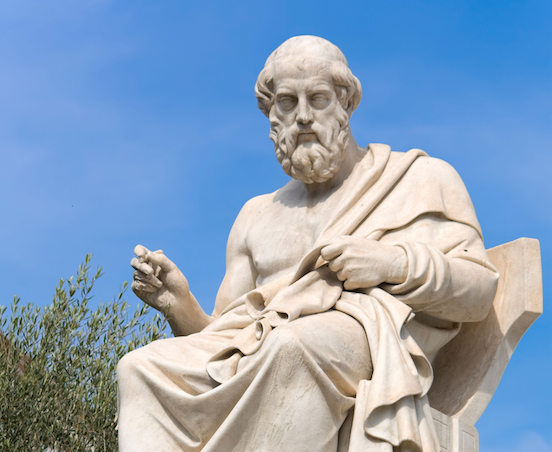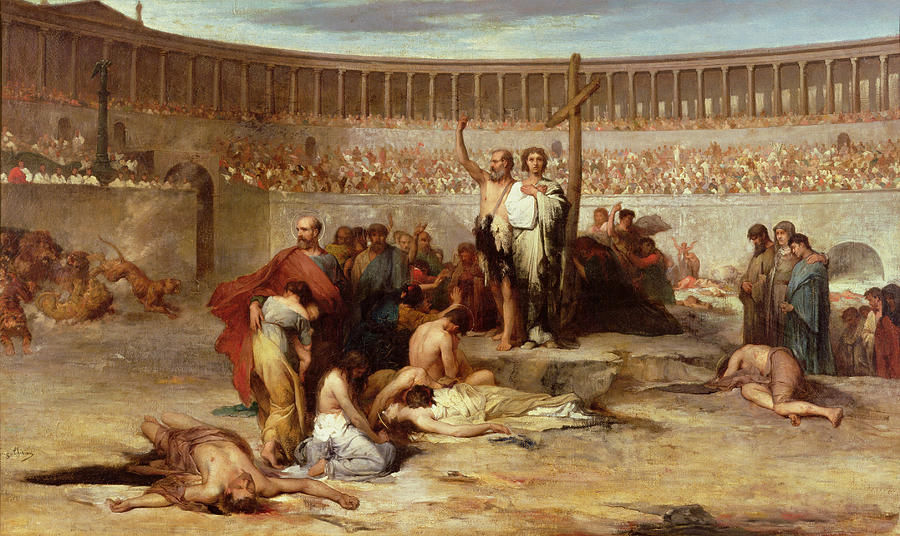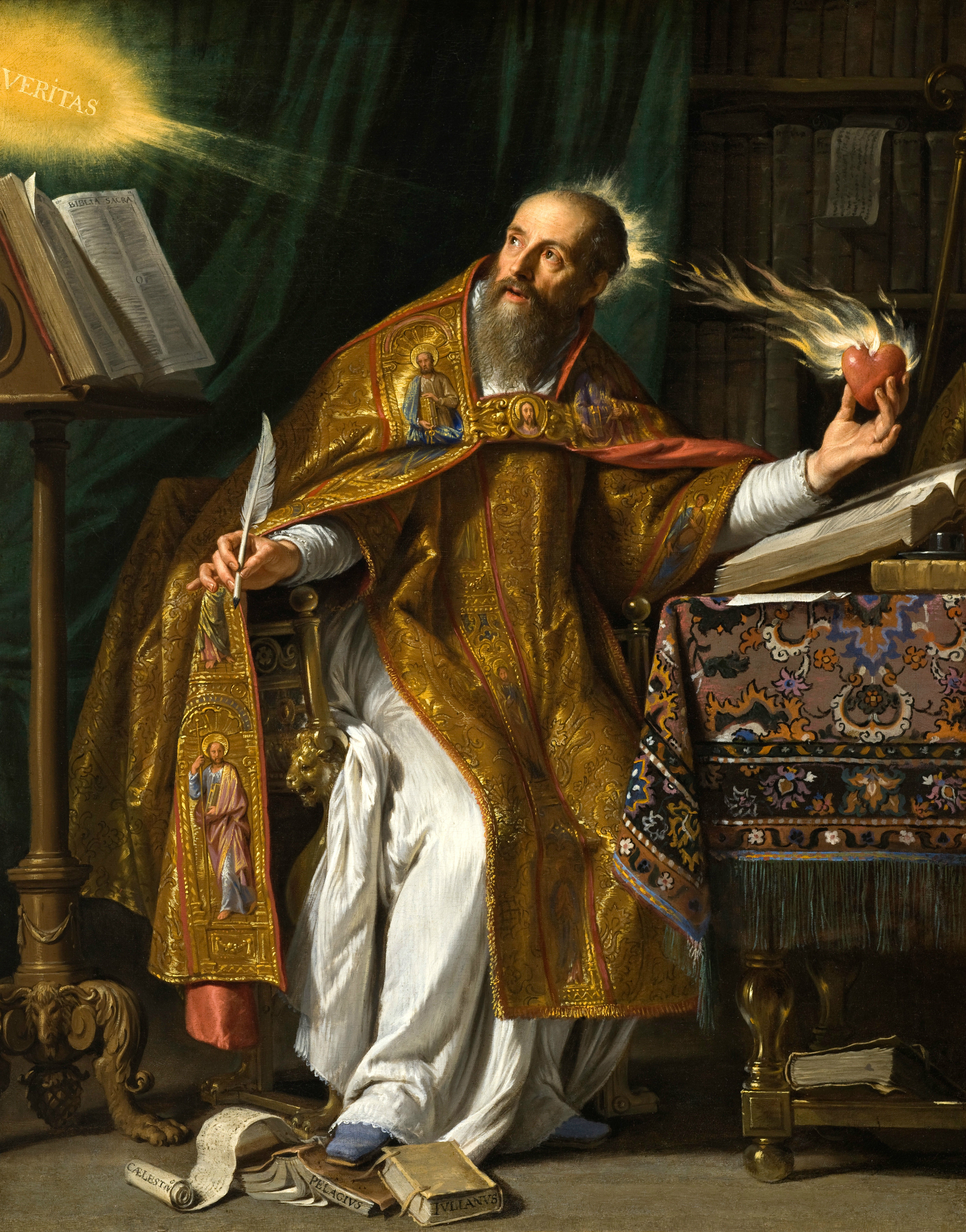|
This is a non-WLC article. When using resources from outside authors, we only publish the content that is 100% in harmony with the Bible and WLC current biblical beliefs. So such articles can be treated as if coming directly from WLC. We have been greatly blessed by the ministry of many servants of Yahuwah. But we do not advise our members to explore other works by these authors. Such works, we have excluded from publications because they contain errors. Sadly, we have yet to find a ministry that is error-free. If you are shocked by some non-WLC published content [articles/episodes], keep in mind Proverbs 4:18. Our understanding of His truth is evolving, as more light is shed on our pathway. We cherish truth more than life, and seek it wherever it may be found. |
OVERVIEW
The early Christian church was heavily influenced by Plato, and the effects of Plato’s teaching can still be seen within Christianity today. This is particularly true when it comes to the topic of heaven. Many Christians today would be surprised to learn that they hold a Platonic view of heaven which is not Biblical. This brief paper will explain who Plato is, his main philosophical views, and how those views have shaped popular opinion about heaven today.
THE POPULAR VIEW OF HEAVEN
There’s something very wrong with the popular view of heaven today both inside and outside the church. N.T. Wright, Bishop of Durham, calls the prevailing view a “distortion and serious diminution of Christian hope.”1 Sadly, Wright is right. Two-thirds of Americans who claimed to believe in the resurrection, when polled, said they do not believe they will have physical bodies after the resurrection, but will be disembodied spirits.2 Wright adds, “I’ve often heard people say, ‘I’m going to heaven soon, and I won’t need this stupid body there, thank goodness.’”3

For many Christians today, heaven is seen as an ethereal, ideal, otherworldy place where disembodied perfected spirits roam. It’s largely an unfamiliar, non-Earth like environment where everything remains the same. It’s seen as a purely spiritual place without time and space, where there’s nothing to do but float around and gaze at Yahuwah.
THE BIBLICAL VIEW
While the idea of being set free from our bodies might be tantalizing to some, the Bible presents a vastly different concept of heaven. According to the Bible, heaven is actually a restoration of our physical universe, one which includes a new, resurrected Earth. Instead of dwelling in an abstract, otherworldy place, this newly resurrected Earth will be familiar to us, only much better. It will be a place where culture and society continue to enjoy being productive. We will be living in resurrected physical bodies which dwell inside time and space. Instead of sitting around with nothing to do, we will actively serve and worship Yahuwah by helping others much like we do today. It will be a fascinating place where we get to spend an eternity learning and discovering the wonderful new creation of Yahuwah.
The concept of a resurrected universe is the overarching theme of the entire Bible. Yahuwah cursed the ground at the Fall, at which time the earth and the entire universe was changed. At that time “the creation was subjected to frustration.” (Romans 8:20) The universe which was previously declared by Yahuwah to be good (Genesis 1:31) had been subjected to entropy as the direct result of man’s disobedience, and would from that time undergo a breaking down process. The Biblical hope, however, in sending the Messiah (Genesis 3:15) would be that Messiah would undo the works of the devil (1 John 3:8), which includes not only redeeming mankind from the penalty of sin, but also restoring Yahuwah’s physical creation to its perfect state before the Fall. At that time, “the creation itself will be liberated from its bondage to decay and brought into the freedom and glory of the children of Yahuwah.” (Romans 8:21) The Bible begins with the Fall of Genesis and ends with the Restoration of Revelation where Heaven, the New Jerusalem, will be united with Earth and “the dwelling of Yahuwah (will be) with men, and he will live with them” and creation will be restored. (Revelation 21:2-3)
How this foundational teaching of the Bible can be so easily misunderstood boggles the mind. How could there be such a big misunderstanding of what would seemingly be such an important topic within the Christian world? It has to do with Plato.
BRIEF SUMMARY OF PLATO
 The Greek philosopher Plato (427 BC) is considered to be one of the greatest philosophers of all time. He was born four centuries before Christ yet his teaching would have tremendous influence over early Christian doctrine and continue to shape Christian thought until this day.
The Greek philosopher Plato (427 BC) is considered to be one of the greatest philosophers of all time. He was born four centuries before Christ yet his teaching would have tremendous influence over early Christian doctrine and continue to shape Christian thought until this day.
Plato asserted that what we see around us in our physical world—trees, chairs, horses, plants and people—everything we see, touch, taste and smell is not actually real. Only the idea behind a thing is real. For example, everybody has an idea of a horse. When we compare one horse to the next, we can see that there are differences, but we all know they are horses because there’s an idea of a horse. And this idea is the perfect horse. The perfect horse only exists as an idea or “form”. Because only ideas of things are perfect, Plato asserted that the realm of ideas was far superior to this physical world we live in.
As a result, Plato wanted to set people free from their bondage to this world. In his Parable of the Cave, he explains how a person could be set free from bondage to the shadows of this world by becoming aware of the higher reality of forms. His parable asserts that all human beings are chained in darkness, believing reality to be the things that we see around us. But there is a higher reality that exists beyond, and if we could just be set free and experience it, we would understand that it is far better, because it is the actual true reality of which everything is but a shadow.
PLATO’S CONCEPT OF HEAVEN
Not surprisingly, Plato’s heaven is one in which man is free from the imperfect physical, material world. Plato believed that man is primarily made up of soul, and that man’s soul is trapped in a body, much like being trapped in a prison. This is the basis for Plato’s phrase “soma sema” which means the body is a prison or tomb for the soul. To Plato, salvation occurs when the soul is set free from this prison-body. The soul is then free to live in the realm of pure forms. And there, it “can behold the absolute Good, the Pure Form.”4 What does Plato’s view of heaven have to do with Christianity?
PLATO’S INFLUENCE ON THE EARLY CHURCH FATHERS
It may be a surprise to some that the early church fathers were heavily influenced by Greek philosophy. Some actually believed that Yahuwah had given Greek philosophy to the Gentile world to prepare it for the coming Messiah in the same way that Yahuwah used Moses to prepare the Jewish people. Plato, in this way, was seen to have a kind of preparatory role for the Gospel. They believed that the great philosophers had been recipients of “the universal light of a divine revelation through the ‘Logos,’ which, and through human reason, ‘lighteth every man that cometh into the world.’”5 As a result, many of Plato’s ideas were espoused by these early influential leaders. Here is a brief survey.
Clement of Alexandria (150 AD) believed that Greek philosophy was the handmaid of theology. His writings were full of Platonic teachings. Perhaps his admiration for Plato can be best seen in his statement:
…before the advent of the Lord, philosophy was necessary to the Greeks for righteousness. And now it becomes conducive to piety; being a kind of preparatory training to those who attain to faith… philosophy was given to the Greeks directly and primarily, till the Lord should call the Greeks. For this was a schoolmaster to bring “the Hellenic mind,” as the law, the Hebrews, “to Christ.” Philosophy, therefore, was a preparation, paving the way for him who is perfected in Christ.6

Early apologist Justin Martyr (100 AD) believed Plato “spoke well in proportion to the share he had of the spermatic word”.7 While recognizing that there were clear differences between the two teachings, Justin did find much similarity between Platonic philosophy and Christianity. This admiration for Plato was shared by other apologetic writers, especially Athenagoras. They had a reverence for Platonic teaching, and made frequent reference to it, sometimes quoting entire passages from Plato while making a defense of the Christian faith.8
Eusebius of Caesarea (263 AD) diligently sought to harmonize Plato with Christianity. He said of Plato that he was “the only Greek who has attained the porch of (Christian) truth”9 And, Bishop Theodoret (393 AD) was widely acquainted with Greek literature and the philosophers including Xenophanes, Heraclitus, Zeno, Parmenides, Empedocles, Euripides, Herodotus, Xenophon, Aristotle, and he largely quoted from Plato.10
Clearly, the early church was heavily inundated with Greek, namely Platonic thought. But perhaps the theologian who is most responsible for shaping the church’s Platonic view of heaven is Augustine.
AUGUSTINE
 The famous theologian Augustine (354 AD) was very heavily influenced by Plato. Augustine’s De Civitate Dei has been called “the ripest fruit of the inward union of Christian and Platonic wisdom”11 Augustine went so far to say in his Confessions that he thanked Yahuwah that he became familiar with Plato first, because had he not, he probably would never have been able to receive the Gospel.12 With such a high view of Plato, it’s no surprise, then, that Augustine’s view of heaven was so heavily affected by him. As Benedict Viviano says of Augustine,
The famous theologian Augustine (354 AD) was very heavily influenced by Plato. Augustine’s De Civitate Dei has been called “the ripest fruit of the inward union of Christian and Platonic wisdom”11 Augustine went so far to say in his Confessions that he thanked Yahuwah that he became familiar with Plato first, because had he not, he probably would never have been able to receive the Gospel.12 With such a high view of Plato, it’s no surprise, then, that Augustine’s view of heaven was so heavily affected by him. As Benedict Viviano says of Augustine,
“We need only note that Augustine was strongly influenced by neo-Platonic philosophy and has even read Plotinus and Prophyry… This philosophy was highly spiritual and other-worldly, centered on the one and the eternal, treating the material and the historically contingent as inferior stages in the ascent of the soul to union with the one.”13
AUGUSTINE’S SPIRITUAL VIEW OF HEAVEN
Augustine “was attracted to the spiritual interpretation of the kingdom.” For Augustine, “the kingdom of God consists in eternal life with God in heaven.”14 Michael Vlach adds that “it was Augustine’s spiritual view of the kingdom that also contributed to his belief that the church is the fulfillment of the thousands year reign of Christ.15 It was then his spiritualized view which became the accepted Roman Catholic view, which remains the dominant view within the Catholic Church today, as well a popular view within the protestant church at large, and general Western secular thought. Thus the origin of Christianity’s unbiblical view of heaven can be found in the church’s adoption of key concepts from Plato.
IMPORTANCE OF STUDYING PHILOSOPHY
It may come as a shock to many Christians today that their view of heaven does not originate from the Bible, but from the Greek philosopher Plato. This underscores the importance of studying philosophy for the Christian worker. Without an understanding of the big influential thinkers throughout history, it can be difficult to recognize truth from error. Indeed, this can be seen when it comes to the topic of heaven within the church today. Pastors would do well to study philosophy in order to better recognize the major flows of thought that have influenced the church throughout its history, and thus be better equipped to communicate an accurate Biblical worldview.
BIBLIOGRAPHY
Alcorn, Randy. Heaven. Tyndale House Publishers, Inc., 2004.
Alexandria, Clement of. “The Stromata, or Miscellanies”. In The Ante-Nicene Fathers, Volume II: Fathers of the Second Century: Hermas, Tatian, Athenagoras, Theophilus, and Clement of Alexandria (Entire). Buffalo, NY: Christian Literature Company, 1885.
Augustine, S., Bishop of Hippo, & Pusey, E. B. The Confessions of St. Augustine. Oak Harbor, WA: Logos Research Systems, Inc., 1996.
Biema, David Van. Christians Wrong About Heaven, Says Bishop. February 7, 2008. http://www.time.com/time/world/article/0,8599,1710844,00.html.
Geisler, Norman. A History of Western Philosophy, Vol. I: Ancient and Medieval. Bastion Books, 2012.
Jackson, B. Prolegomena: The Life and Writings of the Blessed Theodoretus, Bishop of Cyrus. In P. Schaff & H. Wace (Eds.), A Select Library of the Nicene and Post-Nicene Fathers of the Christian Church, Second Series, Volume III: Theodoret, Jerome, Gennadius, Rufinus. New York: Christian Literature Company., 1892.
Martyr, Justin. The Second Apology of Justin. In A. Roberts, J. Donaldson & A. C. Coxe (Eds.), The Ante-Nicene Fathers, Volume I: The Apostolic Fathers with Justin Martyr and Irenaeus (A. Roberts, J. Donaldson & A. C. Coxe, Ed.). Buffalo, NY: Christian Literature Company, 1885.
Schaff, Philip. The New Schaff-Herzog Encyclopedia of Religious Knowledge, Vol. IX. 1914.
Viviano, Benedict T. The Kingdom of God in History. Eugene, OR: Wipf and Stock, 1988.
Vlach, Michael J. Platonism’s Influence On Christian Eschatology. n.d. http://theologicalstudies.org/files/resources/Platonism_and_Eschatology_article_(PDF).pdf (accessed February 22, 2013).
1 (Biema 2008)
2 (Alcorn 2004, 110)
3(Biema 2008)
4 (Geisler 2012, 69)
5 (Schaff 1914, 89)
6 (Alexandria 1885, 305)
7(Martyr 1885, 193)
8 Ibid. p.18.
9 Ibid. p.21.
10 (Jackson 1892, 19)
11 Ibid. p.21.
12 (Augustine 1996, 7.20)
13 (Viviano 1988, 52)
14 Ibid., 52-53.
15 (Vlach n.d.)
This is a non-WLC article written by Shawn Nelson (https://geekychristian.com).
We have taken out from the original article all pagan names and titles of the Father and Son, and have replaced them with the original given names. Furthermore, we have restored in the Scriptures quoted the names of the Father and Son, as they were originally written by the inspired authors of the Bible. -WLC Team








